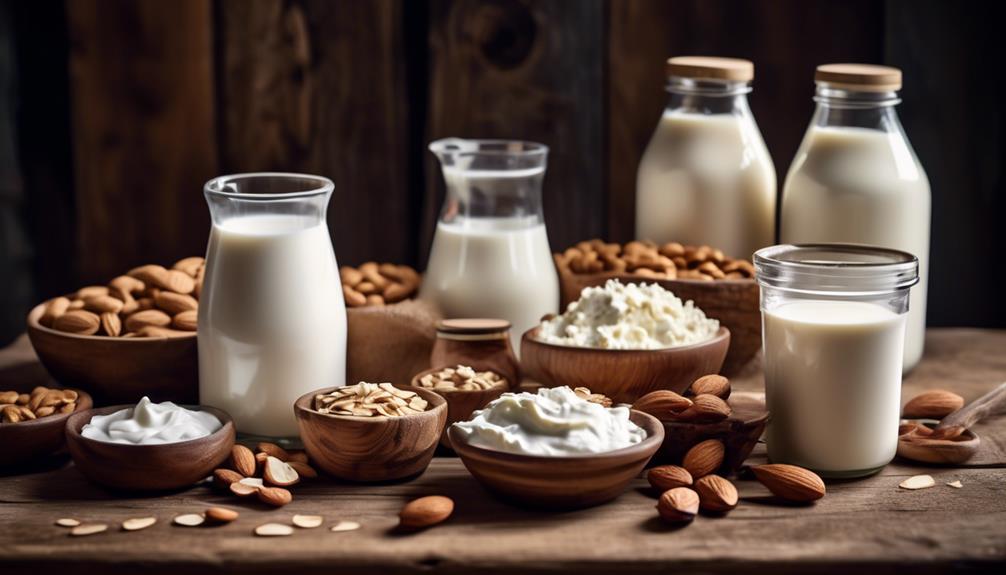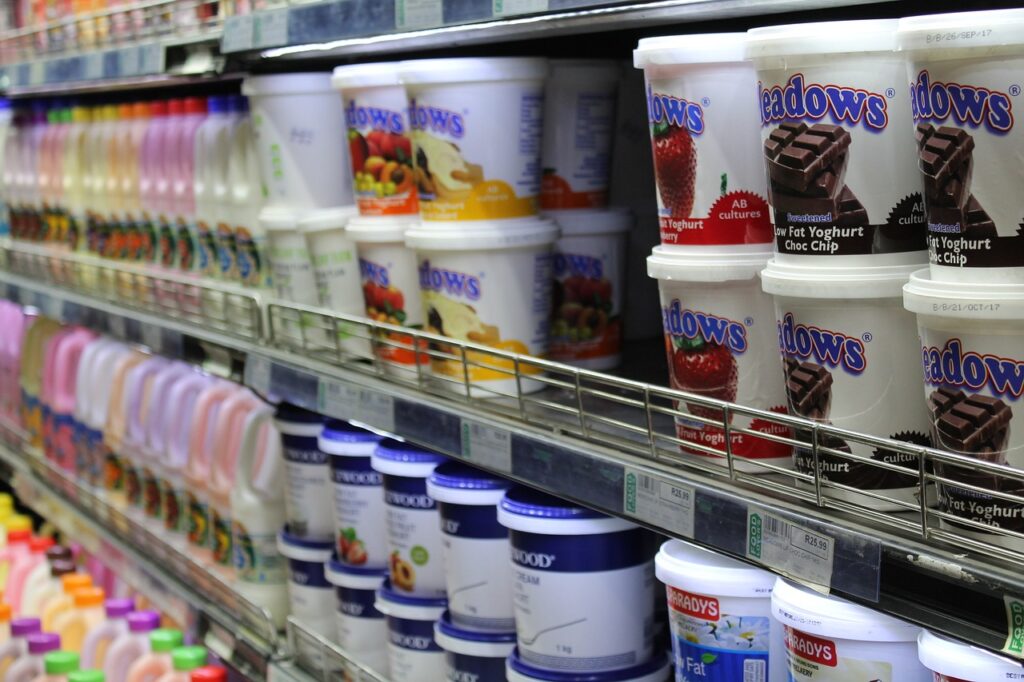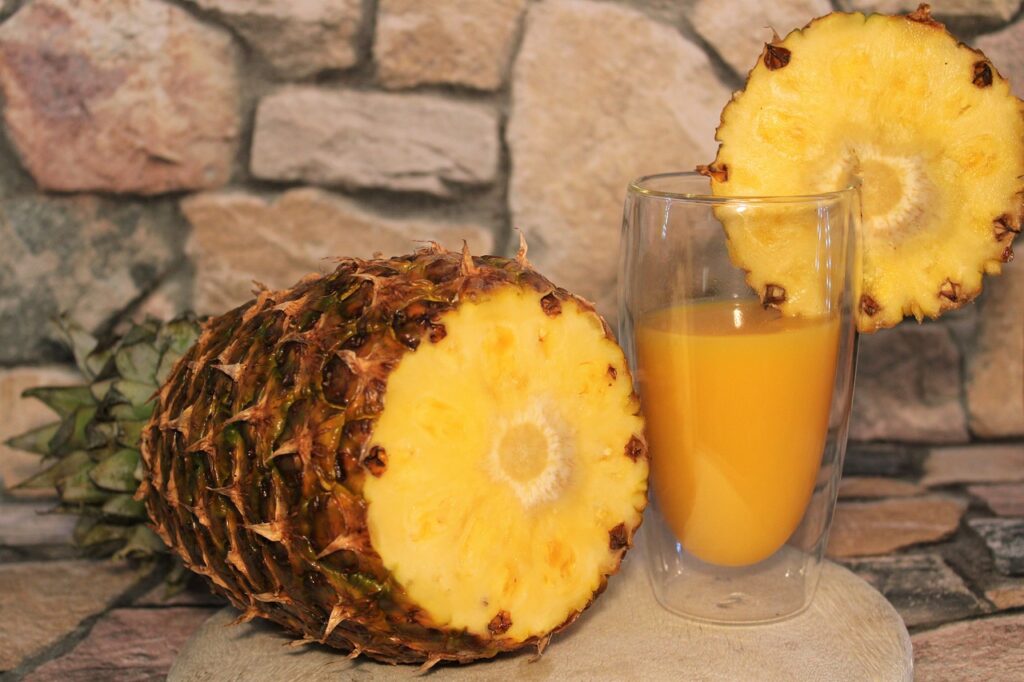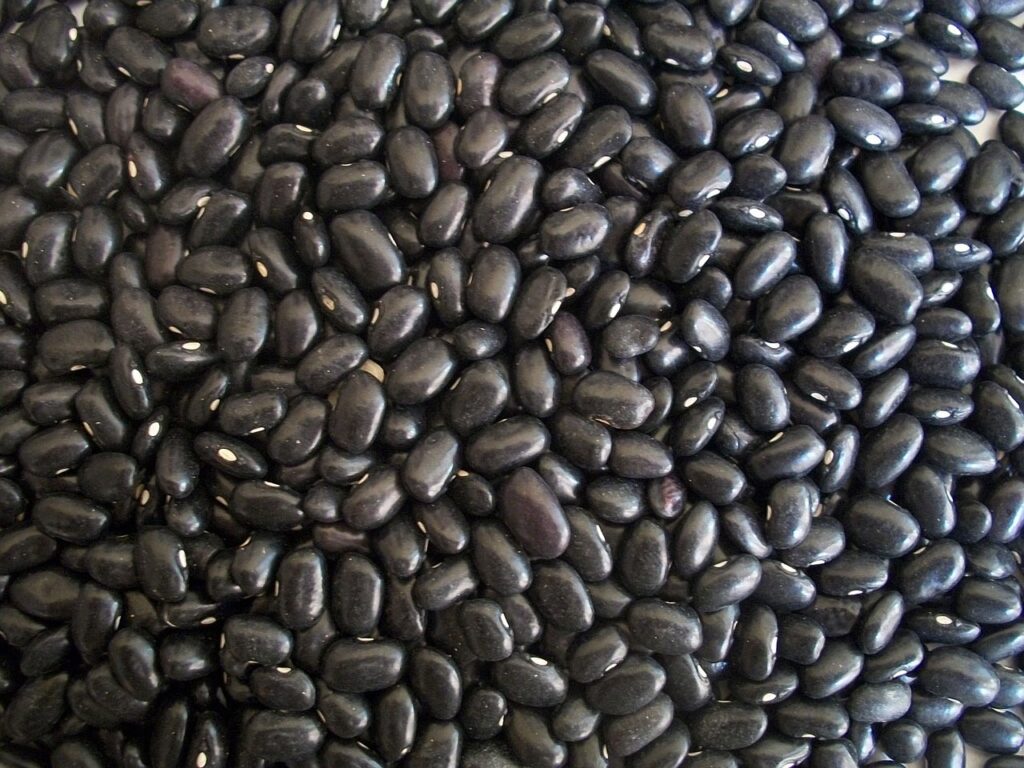If you're looking to explore alternative options for your dairy intake, then you might be interested in discovering some keto-friendly dairy substitutes. These substitutes offer a lighter consistency and can be used in a variety of dishes, whether sweet or savory. They provide a range of flavors and textures to suit your taste preferences.
But which ones should you consider? Well, let's delve into the world of keto-friendly dairy substitutes and uncover some tantalizing options that may just surprise you.
Macadamia Nut Milk
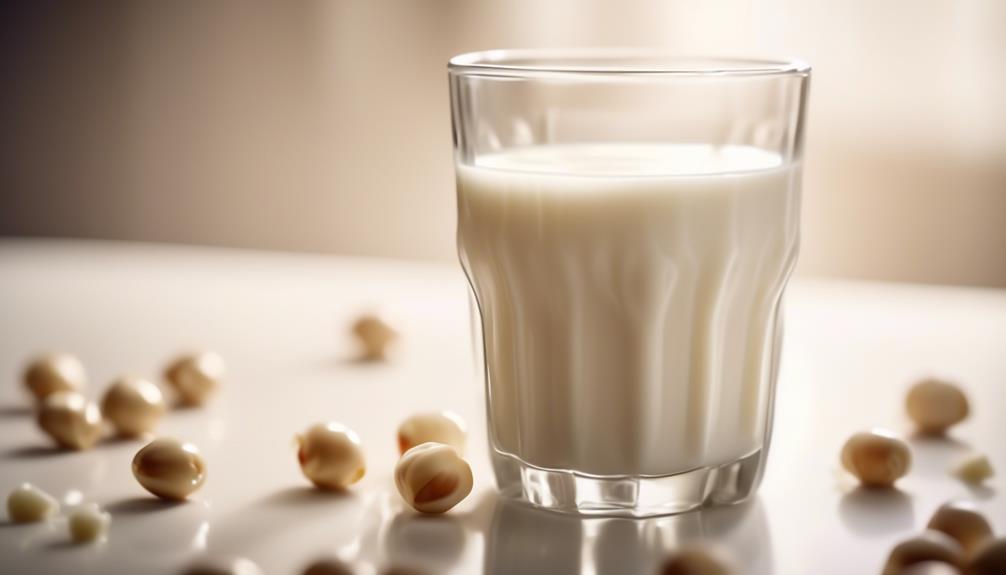
Macadamia nut milk, with its high fat and low carb content, is a keto-friendly dairy substitute that can be easily incorporated into your diet. This unsweetened milk option is ideal for those following a ketogenic diet, as it contains minimal carbohydrates and is rich in healthy fats. With its creamy and nutty flavor, macadamia nut milk is a delicious alternative to traditional dairy milk. It can be used in a variety of recipes, such as smoothies, shakes, and baked goods, making it a versatile choice for keto enthusiasts.
Compared to almond milk, macadamia nut milk has a higher fat content, which is beneficial for those on a keto diet. Additionally, it has a lower carb content, making it a suitable choice for those who want to limit their carbohydrate intake. However, it's important to check labels when purchasing macadamia nut milk, as some brands may contain added sugars or other unwanted ingredients.
Almond Milk
Almond milk offers several health benefits that make it a great choice for those following a keto diet. It's low in carbs and high in fat, which helps to maintain ketosis.
Additionally, almond milk is rich in nutrients like vitamin E and calcium, providing a nutritional boost to your recipes.
Incorporating almond milk into your keto recipes is easy, as it can be used in place of regular milk in a variety of dishes such as smoothies, sauces, and baked goods.
Health Benefits of Almond Milk
With its high content of healthy fats and low carbohydrate count, almond milk is an excellent choice for individuals following a keto diet.
Almond milk is a dairy-free milk alternative that provides a creamy texture and a nutty flavor. It can be used as a substitute in various recipes, such as smoothies, coffee, and baked goods.
Almond milk can be easily made at home or found in stores, but it's important to check labels for added sugars. Opt for unsweetened varieties to keep the carb count low.
Additionally, almond milk is a suitable option for those with nut allergies and can be a good source of plant-based protein. One cup of almond milk contains only 1-2 net carbs, making it a great choice for individuals on a keto diet.
Nutritional Content of Almond Milk
To understand the nutritional content of almond milk, it's important to consider its macronutrient profile and potential health benefits. Here is a breakdown of the nutritional content of almond milk:
- Low in carbs: Almond milk is a keto-friendly dairy substitute, as it's low in carbohydrates. A cup of unsweetened almond milk typically contains around 2-3 grams of carbs, making it a suitable option for those following a low-carb or ketogenic diet.
- High in healthy fats: Almond milk is rich in healthy fats, particularly monounsaturated fats. These fats provide a source of energy and can help promote satiety.
- Nutrient content: While almond milk isn't as high in protein as dairy milk, it's often fortified with vitamins and minerals like calcium, vitamin D, and vitamin E. However, it's important to check the labels, as the nutrient content can vary among brands.
How to Use Almond Milk in Keto Recipes
When incorporating almond milk into your keto recipes, it's important to consider its versatility and potential to enhance both flavor and texture.
Almond milk is a suitable option for keto due to its low carb content and higher fat content. Look for unsweetened almond milk to ensure it aligns with your dietary needs.
Almond milk can be used in a variety of keto recipes, such as smoothies, sauces, and coffee creamer. It can also be used as a substitute for other dairy products like full-fat coconut milk or heavy cream.
If you're looking for alternative plant-based options, unsweetened oat milk or unsweetened soy milk can also be used in keto recipes.
Experiment with almond milk in your keto dishes to add a creamy texture and nutty flavor.
Unsweetened Chocolate Almond Milk
Unsweetened chocolate almond milk is a keto-friendly dairy substitute that's both high in fat and low in carbs. Here are three reasons why you should consider incorporating it into your keto diet:
- Nutty flavor: Unsweetened chocolate almond milk has a delicious nutty taste that adds a unique twist to your recipes. Whether you're making smoothies, baking desserts, or preparing savory dishes, this dairy substitute can enhance the flavor profile of your meals.
- Convenient availability: You can easily find unsweetened chocolate almond milk in many grocery stores. However, it's important to check the labels to ensure there are no added sugars, as some brands may sneak in unwanted carbs. By choosing unsweetened options, you can stay true to your low-carb keto lifestyle.
- DIY option: If you prefer a homemade approach, you can make your own unsweetened chocolate almond milk. Simply blend soaked almonds with water and unsweetened cocoa powder, and strain the mixture to remove any solids. This way, you have full control over the ingredients and can customize it to your taste.
Flaxseed Milk

If you're looking for another keto-friendly dairy substitute with a range of benefits, consider trying flaxseed milk. Flaxseed milk is a low-carb milk alternative that's rich in omega-3 fatty acids. It provides a good source of plant-based protein and is suitable for those with nut allergies.
Flaxseed milk can be made from scratch or found in stores as a keto-friendly dairy substitute. It's a versatile option that can be used in a variety of recipes.
When it comes to incorporating flaxseed milk into your keto diet, it's important to choose unsweetened varieties to ensure it aligns with your carb limit. Checking the labels for added sugars or sweeteners is crucial. Keep in mind that the grams of net carbs may vary depending on the brand, so it's always a good idea to double-check the nutritional information.
Flaxseed milk can be a great addition to your keto-friendly pantry. It offers a low-carb alternative to traditional dairy milk while providing essential omega-3 fatty acids. So, if you're looking for a dairy substitute that fits your keto lifestyle, give flaxseed milk a try.
Pea Milk
Pea milk is a nutritious dairy substitute that can be a valuable addition to a keto diet. It offers a good amount of plant-based protein, making it an excellent choice for those looking to increase their protein intake.
Plus, it's easy to make at home by blending soaked peas and water, allowing you to control the ingredients and ensure it fits your dietary needs.
Nutritional Profile
When considering the nutritional profile of pea milk, it's important to note its high plant-based protein content and suitability for individuals with nut or soy allergies. Here are three key points to consider:
- Protein Power: Pea milk packs a protein punch, making it an excellent choice for those following a keto diet or looking to increase their protein intake. With around 8 grams of protein per cup, it can rival the protein content of dairy milk.
- Low Carb Count: For those watching their carb intake, pea milk is a great option. It typically contains fewer carbs per cup compared to other milk alternatives like almond milk or coconut milk. Opt for unsweetened varieties to keep the carb count low.
- Allergy-Friendly: Pea milk is a suitable choice for individuals with nut or soy allergies, as it's free from these common allergens. It provides a safe and nutritious alternative for those with dietary restrictions.
Consider incorporating pea milk into your diet as a keto-friendly and allergy-friendly dairy substitute.
How to Make It
To make pea milk, start by soaking 1 cup of raw nuts or sunflower seeds overnight. After soaking, blend the nuts or seeds with 4 cups of filtered water until smooth. To remove any pulp, strain the mixture through a muslin cloth or nut bag. Squeeze out the homemade milk from the cloth or bag.
You can store the homemade pea milk in an airtight container for 3-5 days or enjoy it immediately. Pea milk is a keto-friendly dairy substitute that can be used in place of heavy cream, almond milk, or coconut milk. It's low in carbs and unsweetened, making it a suitable option for those following a keto diet.
Enjoy the creamy goodness of homemade pea milk as part of your low carb, dairy-free journey.
Soy Milk

Soy milk, a versatile and protein-rich dairy substitute, offers a great alternative for those with allergies or dietary restrictions. Here are three reasons why soy milk is a keto-friendly choice for those looking for milk alternatives:
- Low in Carbs: One of the main concerns when following a keto diet is managing carb intake. Soy milk is a low-carb option that can fit into a keto lifestyle. A cup of unsweetened soy milk contains about 3 grams of net carbs, making it a suitable choice for those watching their carb intake.
- Nut-Free and Allergy-Friendly: Many people have allergies or intolerances to nuts, making it difficult to find suitable milk alternatives. Soy milk provides a nut-free option that's safe for those with nut allergies. Additionally, it's also suitable for those with soy allergies, as long as they can tolerate soy protein.
- Variety of Flavors and Varieties: Soy milk is available in a wide range of flavors and varieties, allowing you to find one that suits your taste preferences. Whether you prefer original, vanilla, or chocolate, there's a soy milk option for you. Additionally, you can find options that are fortified with vitamins and minerals to ensure you're getting essential nutrients.
When looking for a keto-friendly dairy substitute, consider incorporating unsweetened almond milk, unsweetened coconut milk, unsweetened cashew milk, or unsweetened hemp milk into your diet. However, if you have allergies or dietary restrictions, soy milk can be an excellent alternative that provides protein and versatility.
Cashew Milk
Cashew milk, a creamy and flavorful keto-friendly dairy substitute, is a versatile option that can be used in a variety of dishes. With its low-carb content, cashew milk is a great choice for those following a keto diet. It can be used as a milk alternative in both sweet and savory recipes, making it a valuable ingredient in your kitchen.
Cashew milk can be easily made at home by blending cashews with water and straining the mixture. If you prefer convenience, you can also find cashew milk in stores. When choosing store-bought options, it's important to check the labels for added sugars, as some brands may include sweeteners that can increase the carb content.
One of the benefits of cashew milk is its rich and creamy texture, which makes it a great substitute for traditional milk in recipes. It can be used in smoothies, coffee, or poured over cereal. Cashew milk can also be used in cooking and baking, adding a subtle nutty flavor to dishes.
If you're looking for other keto-friendly dairy substitutes, options like coconut cream and almond milk are also worth considering. These alternatives provide different flavors and textures, allowing you to experiment and find the perfect substitute for your favorite recipes.
Coconut Milk

Coconut milk is a nutritious dairy substitute that offers several benefits. It's rich in healthy fats and low in carbs, making it a suitable option for those following a keto diet.
Coconut milk can be used in a variety of ways, from cooking and baking to adding creaminess to beverages.
When shopping for coconut milk, be sure to check the labels for added sugars or sweeteners. It can be found in stores and provides a convenient and keto-friendly alternative to traditional dairy products.
Nutritional Benefits
With its low carbohydrate content and high healthy fat content, coconut milk offers numerous nutritional benefits for those following a keto diet. Here are three reasons why incorporating coconut milk into your keto-friendly diet can be beneficial:
- Low-carb alternative: Coconut milk is naturally low in carbs, making it a great substitute for traditional dairy milk. It contains only about 2 grams of carbs per serving, allowing you to stay within your daily carb limits while enjoying a creamy and flavorful milk option.
- Healthy fats: Coconut milk is rich in healthy fats, particularly medium-chain triglycerides (MCTs). These fats are easily digested and can provide a quick source of energy for your body. Additionally, MCTs have been shown to increase feelings of fullness and promote weight loss.
- Nutrient profile: Coconut milk contains essential vitamins and minerals such as iron, magnesium, and potassium. These nutrients play crucial roles in maintaining overall health and supporting various bodily functions.
Cooking and Baking Uses
Are you looking for a versatile ingredient that can enhance the flavor and texture of both sweet and savory dishes while keeping your keto diet on track? Look no further than coconut milk.
This dairy substitute is perfect for cooking and baking on a low-carb, ketogenic diet. Coconut milk can be used in a variety of recipes, from curries and soups to desserts and smoothies. It adds a creamy richness and tropical taste that's hard to beat.
Whether you're making a coconut curry or a coconut flour cake, coconut milk is a great option. Just make sure to check the labels for added sugars or sweeteners when purchasing coconut milk. You can find coconut milk in stores or even make it at home.
Shopping and Storage Tips
To ensure the quality and freshness of your coconut milk, it's important to follow these shopping and storage tips:
- Look for unsweetened versions: When buying coconut milk, opt for unsweetened versions to avoid any added sugars or sweeteners that may increase the carb content. Check the label to make sure there are no hidden carb-based ingredients.
- Store in a cool, dry place: Coconut milk should be stored in a cool, dry place, away from direct sunlight or heat sources. This will help maintain its flavor and prevent spoilage.
- Refrigerate after opening: Once opened, transfer the coconut milk to an airtight container and refrigerate it. This will help prolong its shelf life and prevent any bacterial growth.
Half-and-half

Half-and-half is a creamy, keto-friendly dairy substitute that's low in carbs and high in fat. It can be a great addition to your keto diet, providing a rich and creamy taste without adding too many carbohydrates. Half-and-half is often used as a milk substitute and can be diluted with water if desired. However, it's important to check labels for any added sugars or sweeteners in commercial options, as these can increase the carb content.
One advantage of using half-and-half as a dairy substitute is that it can sometimes be used as a substitute for heavy cream in recipes. This can be especially useful if you're looking to reduce the carb content of a dish while still maintaining a creamy texture.
If you enjoy adding creaminess to your coffee or tea, half-and-half can be a suitable option for you. It provides a smooth and velvety texture without compromising your keto diet. However, if you prefer a non-dairy alternative, almond milk is a popular choice among keto followers.
Heavy Cream
Heavy cream is a versatile and indulgent dairy substitute that's perfect for those following a keto diet. Here are three reasons why heavy cream is a great option for keto-friendly dairy substitutes:
- Low in carbs, high in fat: Heavy cream is an excellent choice for keto because it's low in carbohydrates and high in fat. It contains only trace amounts of carbs, making it a suitable choice for those looking to minimize their carb intake while on a keto diet.
- Versatile substitute: Heavy cream can be used as a substitute for milk in various recipes. Whether you're making keto-friendly sauces, soups, or desserts, heavy cream can provide a rich and creamy texture without adding unnecessary carbs.
- Dilution options: If you find heavy cream too thick or rich for your liking, you can easily adjust its consistency by diluting it with water. This allows you to customize the thickness of your dishes and make them more suitable to your taste preferences.
When incorporating heavy cream into your keto diet, it's crucial to check labels for added sugars or sweeteners. Opt for unsweetened varieties to ensure you're keeping your carb intake in check. While heavy cream is a keto-friendly dairy substitute, it's always essential to consider portion sizes and balance it with other nutritious foods to maintain a well-rounded diet.
Homemade Keto-Friendly Milk Substitutes

For those following a keto diet, creating homemade keto-friendly milk substitutes is a practical and nutritious option. There are various low-carb alternatives to traditional dairy milk that can be easily made at home. Nut milk substitutes like macadamia nut, almond, and unsweetened chocolate almond milk are excellent choices as they have high fat and low carb content. These options provide a creamy texture and can be used in a variety of recipes.
If you have a nut allergy or prefer plant-based options, flaxseed, hemp, and flax milk are great alternatives. They're low in carbs, rich in omega-3 fatty acids, and offer plant-based protein. Pea and soy milk are also excellent sources of protein and can be used in recipes, smoothies, cheese sauce, and coffee creamer.
For a creamy and flavorful option, coconut and cashew milk are ideal choices. They're low in carbs and high in healthy fats, making them suitable for both sweet and savory dishes. Oat and rice milk, although slightly higher in carbs compared to other alternatives, provide a creamy texture, mild taste, and can be a good source of fiber or calcium.
Conclusion
In conclusion, there are plenty of keto-friendly dairy substitutes available for those looking to add variety to their diet. From macadamia nut milk to coconut milk, these alternatives offer a lighter consistency and can be used in both sweet and savory dishes.
They provide a good source of healthy fats and quick energy for those following a keto lifestyle. So, why not try these flavorful options and enjoy a delicious and satisfying keto-friendly diet?

